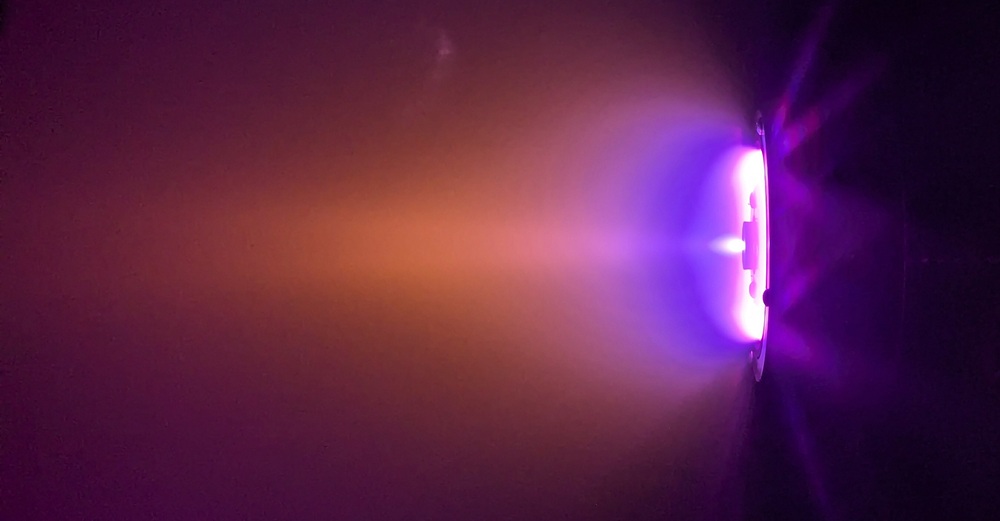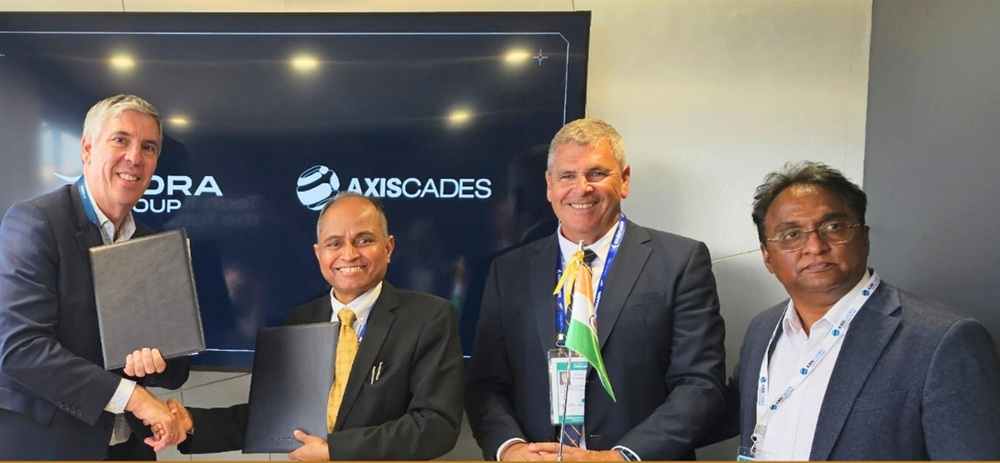Mountain View, California: Muon Space, a leading innovator in end-to-end space systems, today announced the successful close of its oversubscribed Series B funding round, raising a total of $146 million to expand its satellite constellation capabilities for both defense and commercial missions.
The latest tranche, a $89.5 million Series B1 round, complements the initial Series B close in August 2024, combining $44.5 million in equity with $45 million in credit facilities. This significant capital infusion will drive a major scale-up in satellite production, vertical integration of key technologies, and expansion of global operations.
The Series B1 round was led by Congruent Ventures, with participation from existing investors including Activate Capital, Acme Capital, Costanoa Ventures, and Radical Ventures. New investor ArcTern Ventures also joined the syndicate, underscoring broad confidence in Muon Space’s innovative approach and growth trajectory.
Muon Space plans to utilize the new funding to accelerate its production capabilities, including the expansion of its satellite manufacturing and testing infrastructure. Central to this effort is the vertical integration of critical components such as propulsion systems and infrared (IR) and radio frequency (RF) instruments. The company is also deploying its full-stack automated constellation operations platform and expanding its global ground station network to support increased satellite deployments.
Since December 2024, Muon has grown its workforce by 50% to meet rising demand and has already surpassed $100 million in new contracts this year. Notably, the company signed a landmark agreement with Sierra Nevada Corporation (SNC) to develop next-generation satellites for the Vindlér commercial RF sensing constellation, a key milestone in its commercial portfolio.
CEO Jonny Dyer emphasized the company’s mission-driven approach: “High-performance constellations require the speed, cost, consistency, and performance of volume production – they can’t be built one satellite at a time. We are building the world’s first automated, high-mix, high-volume constellation manufacturing system. It’s always been about the mission – now we’re delivering it at scale”.
Joshua Posamentier, Managing Partner at Congruent Ventures, highlighted Muon’s unique position in the industry: “By fulfilling mission requirements with a configurable, vertically integrated platform spanning hardware, software, and operations, they deliver a unique path to on-orbit capabilities – at a pace and price point that commercial, civil and national security customers urgently need”.
A key strategic move accompanying the funding round is Muon Space’s acquisition of Starlight Engines, a propulsion startup that pioneered the first commercially available solid propellant Hall-effect thruster systems. Founded in 2022 by propulsion experts Todd Bailey and Mark Hopkins, Starlight developed a novel zinc-fueled thruster technology that offers a safer, more affordable, and scalable alternative to traditional xenon- and krypton-based propulsion systems.
This zinc-based propulsion eliminates the complexities and costs associated with high-pressure fluid management, a common challenge in space propulsion. The technology enables a more reliable supply chain, lower-cost propellant, simplified integration, and more compact thruster and tank designs. The modular thruster system supports spacecraft ranging from 100kg to over 500kg, aligning perfectly with Muon’s satellite classes.
Paul Day, Muon’s Vice President of Spacecraft Production, explained the significance: “Propulsion remains one of the most persistent cost and supply chain challenges in satellite manufacturing. What Todd and Mark have achieved at Starlight is a fundamentally more elegant and practical solution – solid-state, scalable, throttleable, and safer to handle. By bringing this technology in-house and integrating it into our Halo platform, we can accelerate delivery timelines while improving both schedule reliability and overall mission performance”.
To support its ambitious production goals, Muon Space has inaugurated a new 130,000-square-foot manufacturing and testing facility in San Jose, California. This purpose-built center is designed for full vertical integration and high-throughput satellite production, capable of supporting up to 500 satellites annually in the 100kg to 500kg+ class.
The facility includes 70,000 square feet dedicated to manufacturing, featuring 30,000 square feet of cleanroom space across multiple classifications (Class 10, 1,000, 10,000, and 100,000), representing a tenfold expansion over Muon’s previous facility. The flexible layout accommodates production, assembly, and laboratory operations, with specialized zones for secure integration, spacecraft assembly, optical instrument integration, propulsion integration, and a mission operations center.
Sustainability and security are also priorities: a 300 kW solar array powers most operations, and the facility meets UL 2050 security standards required for defense programs. Comprehensive environmental testing capabilities include thermal vacuum chambers, vibration tables, and thermal chambers for both unit- and system-level qualification, ensuring satellites meet rigorous mission standards.
At the core of Muon Space’s offering is its proprietary Halo™ technology stack, an integrated hardware and software platform that revolutionizes the design, manufacturing, and operation of Low Earth Orbit (LEO) satellite constellations. Halo™ combines advanced spacecraft platforms with robust payload integration and a powerful software-defined orchestration layer, enabling rapid mission customization and superior constellation performance.
The platform includes MuSim, a digital engineering and simulation tool that creates a digital twin of the entire satellite constellation lifecycle, allowing fast and accurate design optimization. MuOS acts as a middleware connecting space, ground, and cloud components through a scalable software-defined network, while MuCore provides software-configurable instrument cores for high-quality data capture. The modular MuSat spacecraft design supports scalable missions across a wide range of sizes.
Founded in 2021, Muon Space is redefining how critical Earth intelligence is delivered from space by designing, building, and operating mission-optimized satellite constellations that enable real-time data and decision-making. With state-of-the-art production facilities in Silicon Valley and a growing roster of national security and commercial customers, Muon Space is poised to become a major player in the rapidly expanding satellite industry.
This $146 million Series B funding milestone marks a pivotal moment for Muon Space as it scales its operations to meet the growing demand for high-performance satellite constellations that serve both defense and commercial sectors. With vertical integration, innovative propulsion technology, and advanced manufacturing capabilities, Muon Space is setting new standards for speed, cost-efficiency, and mission success in the space industry.





